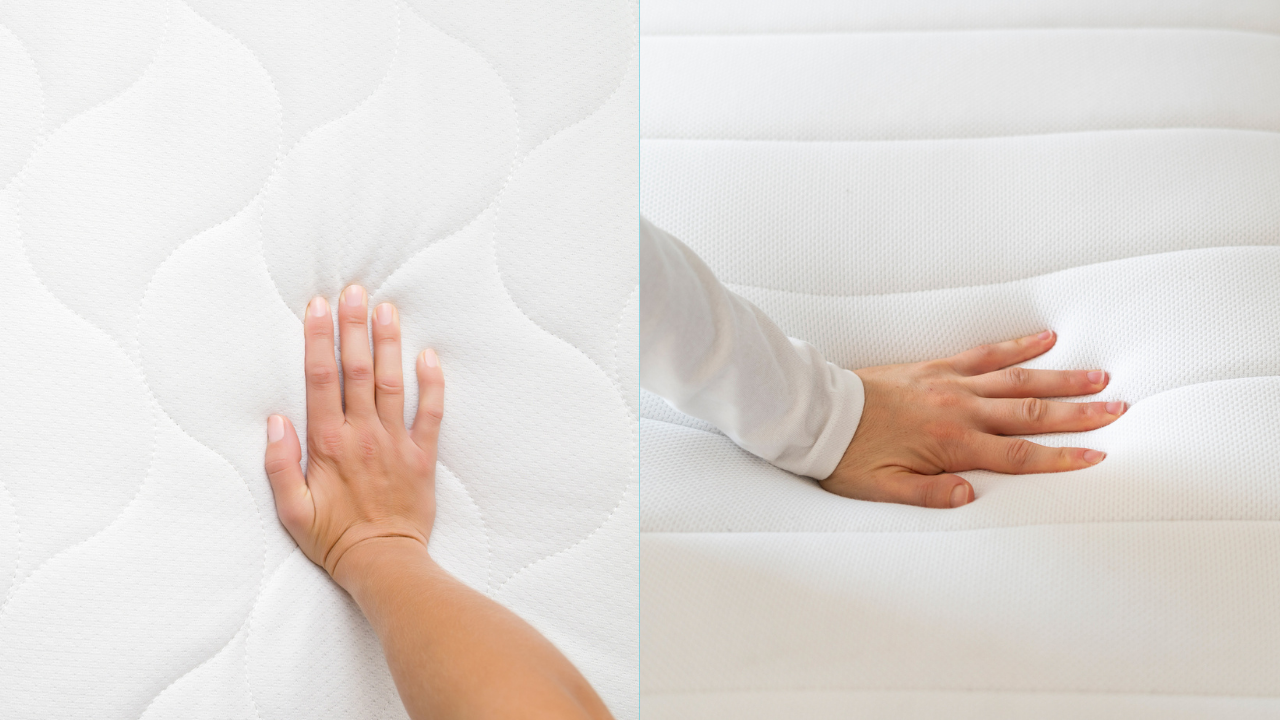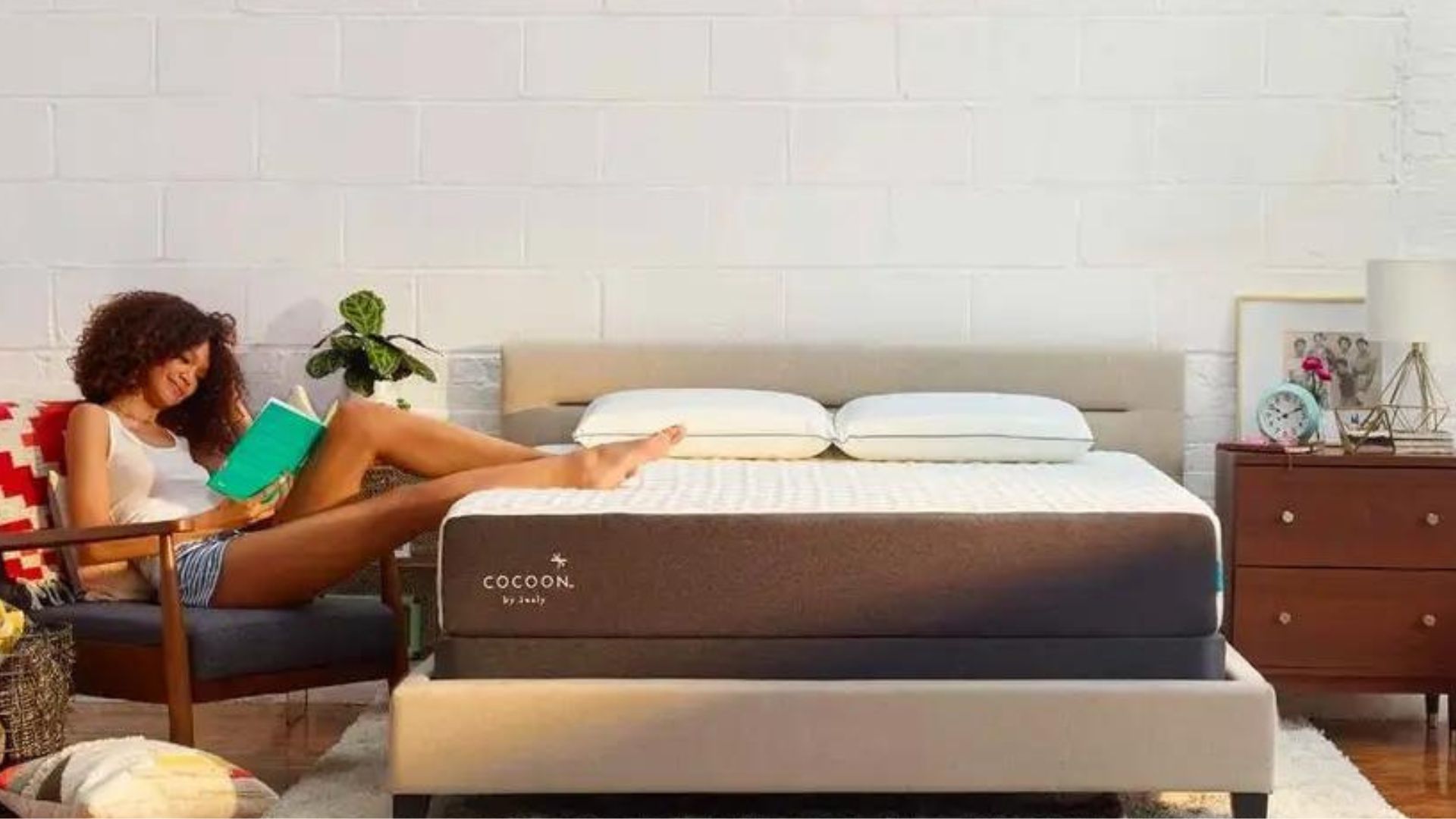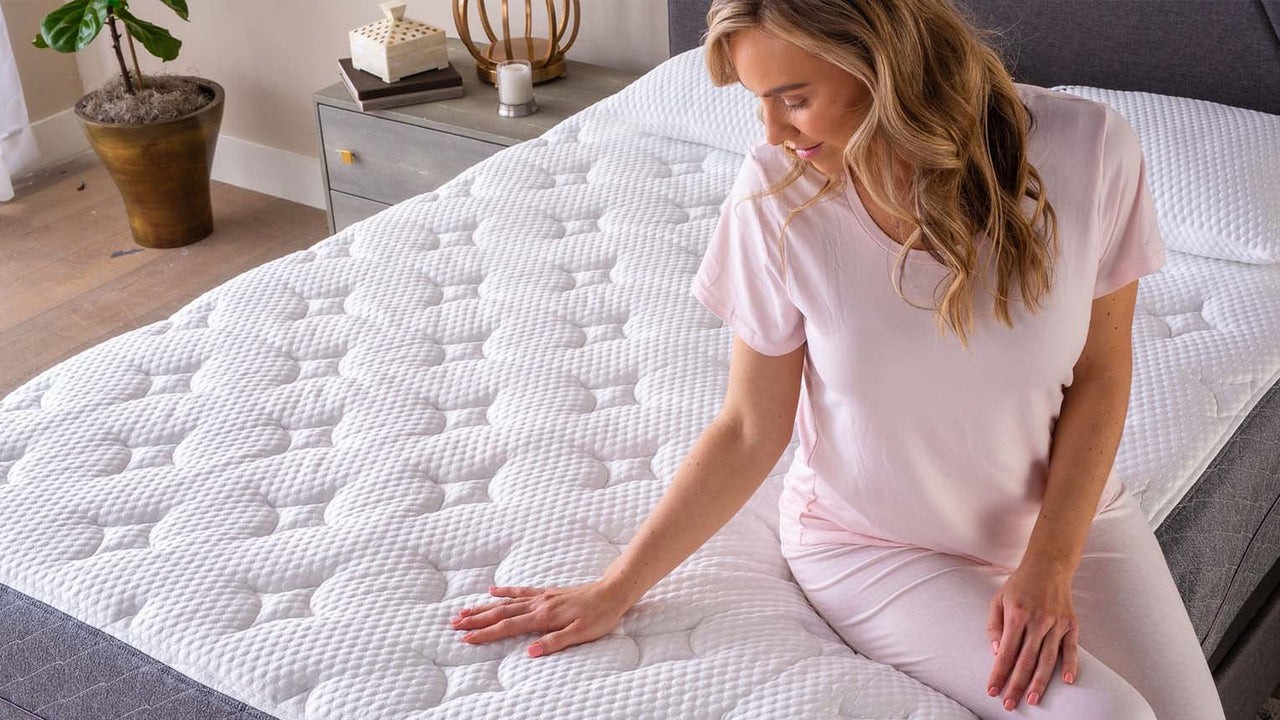Polyurethane vs memory foam mattresses — which material is right for you?
Soft and bouncy or hugging comfort — is a polyurethane or memory foam mattress right for you?

Two of the main materials used to make mattresses are memory foam and polyurethane. But what are these materials and how do you know which one is the right choice for you?
If you’re looking for great sleep, the quality of your bed can make a huge difference. But key to choosing the best mattress for your sleep style is knowing what mattress materials support your sleeping position and needs best.
We're comparing both on feel, support, durability, price and more so you make the right investment for your next bed. We'll also offer out top tips on how to choose the right material for your sleep. For now, let’s start with the lowdown on what polyurethane and memory foam are.
What is polyurethane?
Polyurethane foam is a synthetic material created by combining liquid chemicals. It’s used to manufacture items ranging from car seats and carpet underlay, to cleaning sponges and packaging; it’s also a popular choice for mattresses as it is light, durable and can offer plenty of support.
Polyurethane is sometimes referred to as ‘polyfoam’ and is used to make entire mattresses or just single layers within the bed alongside other materials. There are various qualities of polyurethane foam with the highest being more durable for use in more expensive mattresses.
What is memory foam?
Memory foam is a popular choice for mattresses, and it is also used to make bike seats, headphones and pillows. The material was first developed by NASA for use inside its spacecraft, and the foam has since been adapted for use in mattresses.
The main material in memory foam is polyurethane, but it also contains additional compounds and additives that make it more elastic, so that it adapts to the sleeper’s body shape. Much like polyurethane, memory foam can be used to manufacture an entire mattress or provide single layers along with other materials.
Polyurethane vs memory foam mattresses: The key differences
Comfort and feel
When it comes to that all-important feel of a mattress, it’s usually down to personal preference. If you’re after spring and bounce, then polyurethane foam is a smart choice. This type of foam also offers softness, so it is ideal if you prefer a super-cozy feel. If you need additional support, then a mattress with a high-quality polyurethane foam layer should give you what you need.
Memory foam, meanwhile, offers more cushioning and conforms to the body with a ‘huggy’ feel. This makes it ideal for relieving pressure points and is just the thing for keeping your spine aligned if you toss and turn. These types of mattresses tend to feel more dense than polyurethane mattresses, which has a lighter, airier feel.

Price and budget
Generally speaking, memory foam mattresses are more expensive than regular-quality polyurethane mattresses. This is down to production costs, and, as such, memory foam tends to be more geared towards the luxury end of the market.
However, there are plenty of excellent sales on the best memory foam mattress with some incredible discounts up for grabs, especially with the Black Friday mattress deals coming up.
If a mattress uses high-quality polyurethane, then this will often push the price up too. However, you’ll usually find that polyurethane mattresses are more affordable than memory foam mattresses.
Support and pressure relief
As with comfort, support is subjective. If you are after contoured support or relief for your pressure points, then memory foam is a great option. This material helps distribute your weight evenly and can be more comfortable if you suffer from joint pain or back problems. In fact, one of our top rated best mattresses for back pain, the Cocoon by Sealy Chill mattress, is an all-foam mattress.
While you might not get full edge support from a memory foam mattress, they are an exceptional choice if you want a bed with minimal sagging.
Because polyurethane is lighter, squishier and lower in density than memory foam there will be less support on offer, however if you are looking for a softer surface then it is the ideal choice.

Durability
As a high-quality material, memory foam tends to be more durable and longer lasting, which makes this type of mattress a better long-term investment than its polyurethane counterpart.
It’s worth noting that there are different densities of polyurethane foam, and the higher you go, the more durable the mattress will be. It’s best to opt for a mid-price foam mattress as it will last longer than a very cheap mattress, which you might have to replace within a year or so.
However, if your budget doesn’t stretch to mid-price then check out our best cheap mattress guide, which compares high quality, affordable models, so you can confidently snap up a bargain on either a polyurethane or memory foam mattress.
Temperature regulation
It used to be the case that memory foam had something of a bad rep when it came to temperature regulation, with many sleepers overheating in their sleep. Luckily, things have changed, and many memory foam mattresses now include cooling features such as gel foam and cooling top layers to help regulate body temperature. In fact, our top rated best cooling mattress is the all-foam GhostBed Luxe mattress.
However, memory foam mattresses are usually still the warmer option, and if you are prone to sleeping hot, then a polyurethane mattress might be the better choice for you with its lighter, airier, structure to help you stay cool as you sleep.
If you experience hot flashes or naturally remain hot year round, you could also consider adding a memory foam mattress topper with cooling features to your existing mattress for an extra fresh feel.

How to choose between polyurethane vs memory foam mattresses
If you’re still undecided about which is the best mattress for you, here’s a quick checklist of what to think about when shopping for your next bed online.
1. Decide on your budget
If you want an affordable mattress then a polyurethane foam mattress is a good choice. There are plenty available online at budget prices. However, if you’re opting for a cheaper model, opting for an entry-level mattress from a reputable and established brand will ensure you’re still getting good quality and value for your money.
But, if you have more of a budget, then a memory foam bed will last longer, likely saving you money in the long run. Many memory foam mattresses also have a budget price tag, like the Siena Memory Foam mattress which is currently just $399 for a queen.
2. Consider your sleep style and needs
If you sleep hot, then the cooler feeling of a polyurethane mattress will be a more comfortable option.
Meanwhile, side sleepers or sleepers with back pain could benefit from the extra pressure relief found with a memory foam bed. But if you toss and turn at night you may be frustrated by the sinking feeling and will likely prefer the lighter bouncier feel of polyurethane.
However, do beware that polyurethane mattresses also have more motion transfer, adding a memory foam topper could help absorb some of that movement.

3. Prioritize your comfort
If you prefer the feeling of your body being ‘cradled’ as you sleep, then a memory foam mattress will provide that sink-in feeling, whereas a polyurethane mattress will offer a softer, bouncier feel.
It’s also important to consider your weight when deciding between polyurethane and memory foam. Memory foam will offer more support for heavier weight sleepers, but you may want to consider a hybrid option that combines foam with coils for added support. Browse our guide to the best mattress for heavy people to find the right choice.
Ultimately, whether you choose polyurethane vs memory foam for your mattress, it’s down to what you find comfortable and your personal budget. We’d generally recommend accommodating for a slightly higher priced memory foam rather than polyurethane, because your bed will be more likely to last longer.
Sign up to get the BEST of Tom's Guide direct to your inbox.
Get instant access to breaking news, the hottest reviews, great deals and helpful tips.
Grace is an experienced sleep writer and mattress reviewer who also contributes to our sister site TechRadar, among other Future plc brands. She's a big fan of organic sleep products and has recently invested in a wool mattress topper that she quite happily describes as "life-changing." (Hey, we're serious about our sleep products). When she isn't testing mattresses or writing about sleep, Grace enjoys reading and creative writing, and incorporates meditation and yoga into her wellness routine.

